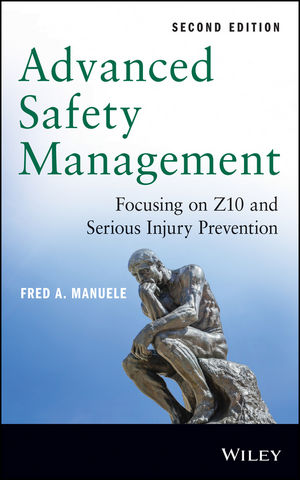Opinion
If Neil Gorsuch is confirmed, “More workers will die on the job”
A Confined Space blog post

Posted with permission from Confined Space.
Will the confirmation of Neil Gorsuch be good for worker safety? The clear answer is “No.”
Allow me to elaborate.
Neil Gorsuch is the judicial embodiment of Steve Bannon’s commitment to deconstruct the regulatory state. Emily Bazelon and Eric Posner argue in the New York Times: “The reality is that Judge Gorsuch embraces a judicial philosophy that would do nothing less than undermine the structure of modern government — including the rules that keep our water clean, regulate the financial markets and protect workers and consumers.”
The administrative state isn’t optional in our complex society. It’s indispensable.
So, what exactly is the administrative state, and why will more workers get sick and die if it is dismantled?
A little history. Congress passes laws, such as the Occupational Safety and Health Act, which tells agencies to do stuff — like issue health and safety standards and enforce those standards. But with a fast moving, dynamic economy, Congress is way too slow to issue standards and interpret ambiguous language in the laws. So, as Bazelon and Posner explain:
The court principle at risk here is known as “Chevron Deference.” If you understand what Chevron Deference is by the time you finish reading this, you will not only understand why Gorsuch is a threat to workers and the environment, but you will also be able to impress your friends and relatives with you deep legal knowledge.
Chevron Deference came from the 1984 Supreme Court case 1984 Supreme Court case Chevron U.S.A., Inc. v. Natural Resources Defense Council, Inc. Basically, what the court said was that where part of a law issued by Congress is ambiguous, the courts can “defer” to interpretations developed by the government agencies charged with enforcing the law, unless such interpretations are unreasonable.
If Judge Gorsuch takes a sledgehammer to workers’ explicit statutory rights as he did in TransAm Trucking, imagine what he may do to rights stemming from agency interpretations. More workers will die on the job. — Jody Calemine, Communications Workers of America
An agency (like OSHA) can spend years or decades studying an issue (like silica), listen to and consider hundreds of hours of witness testimony, tens of thousands of pages of written testimony, determine that a standard is needed, that it reduces significant risk, and that it is economically and technologically feasible before issuing a final standard. When the lawsuits come in, can a judge (or a congressman) determine whether the agency’s expert decision based on that record is correct or not? Chevron deference says, basically, that they can’t. The agency’s obligation is to show that its decision is “reasonable,” given the evidence.
Interestingly, even the late Justice Antonin Scalia was a defender of Chevron deference. “In the long run Chevron will endure,” Justice Scalia wrote in a 1989 article, “because it more accurately reflects the reality of government, and thus more adequately serves its needs.”
Bazelon and Posner fear, based on Gorsuch’s previous opinions and his testimony at his confirmation hearing, that he will vote to repeal Chevron deference when he has the opportunity. “But here’s the thing: Judge Gorsuch is skeptical that Congress can use broadly written laws to delegate authority to agencies in the first place. That can mean only that at least portions of such statutes — the source of so many regulations that safeguard Americans’ welfare — must be sent back to Congress, to redo or not.”
The Frozen Trucker Case
Let’s look at an example of how Gorsuch’s opinions can harm workers: the TransAm Trucking case, also known as the famous “frozen trucker case.” This is a case that Senator Al Frankin (D-MN) grilled Gorsuch on during his confirmation hearing. Watch it here. It’s entertaining and shocking.
Click here to watch the video and read the rest of the blog post.
Looking for a reprint of this article?
From high-res PDFs to custom plaques, order your copy today!







